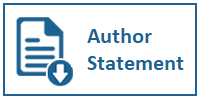PENGARUH UKURAN PERUSAHAAN, REPUTASI AUDITOR, UMUR OBLIGASI, PROFITABILITAS, LIKUIDITAS, LDR, NPL, BOPO TERHADAP PERINGKAT OBLIGASI
DOI:
https://doi.org/10.31937/akuntansi.v14i2.2745Abstract
Abstract” The capital market has an important role for the economy of a country because it is a means for companies to obtain funds from investors, and a means for the public to invest in financial instruments. Currently, bonds are still of interest to the public to invest. Corporate bonds showed a significant increase throughout semester II-2020. This significant increase was caused by emissions that began to increase, in addition to that, the increase in emission values was also supported by a climate of low interest rates. This study was conducted to analyze the effect of firm size, auditor reputation, bond age, profitability, liquidity, loan to deposit ratio, non-performing loan and BOPO on bond ratings. The object of this research is a go public banking company that issues bonds and is rated by PEFINDO, and is listed on the IDX for the 2016-2021 period. The data analysis method used in this study uses multiple regression with the help of the Eviews 10 program. The results of this study conclude that firm size has a significant positive effect on bond ratings, auditor reputation has a significant positive effect on bond ratings, age of oligation has a significant positive effect on bond ratings, loan to deposit ratio (LDR) has a significant positive effect on bond ratings, and non-performing loans has a significant negative effect on bonds rating, while profitability, liquidity, and BOPO has no effect on bond ratings. Frim size and the loan to deposit ratio (LDR) rating are the dominant factors influencing the bond rating.
Keywords: Bond Rating; Firm Size; Auditor reputation; Bond Age Profitability; LDR, NPL, BOPO
Downloads
Downloads
Published
How to Cite
Issue
Section
License
Authors retain copyright and grant the journal right of first publication with the work simultaneously licensed under a Creative Commons Attribution-ShareAlike International License (CC-BY-SA 4.0) that allows others to share the work with an acknowledgement of the work's authorship and initial publication in this journal.
Authors are able to enter into separate, additional contractual arrangements for the non-exclusive distribution of the journal's published version of the work (e.g., post it to an institutional repository or publish it in a book), with an acknowledgement of its initial publication in this journal.
















